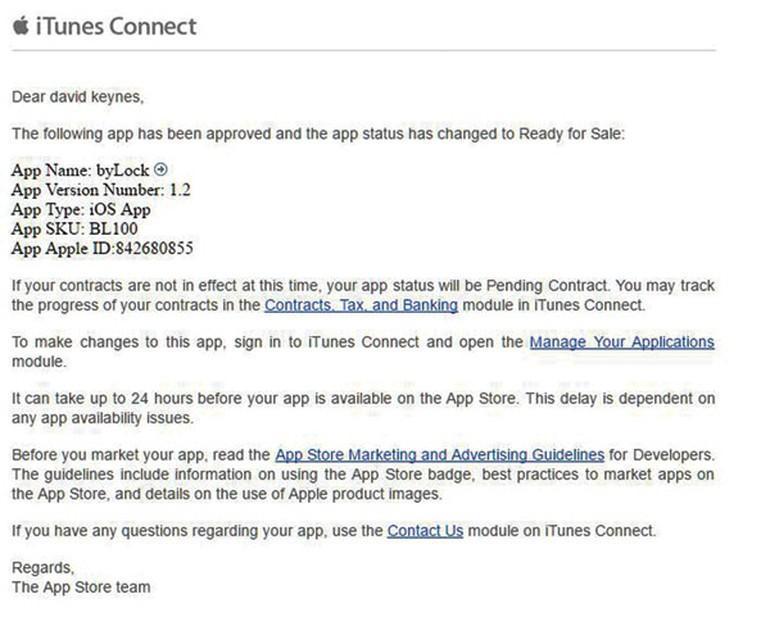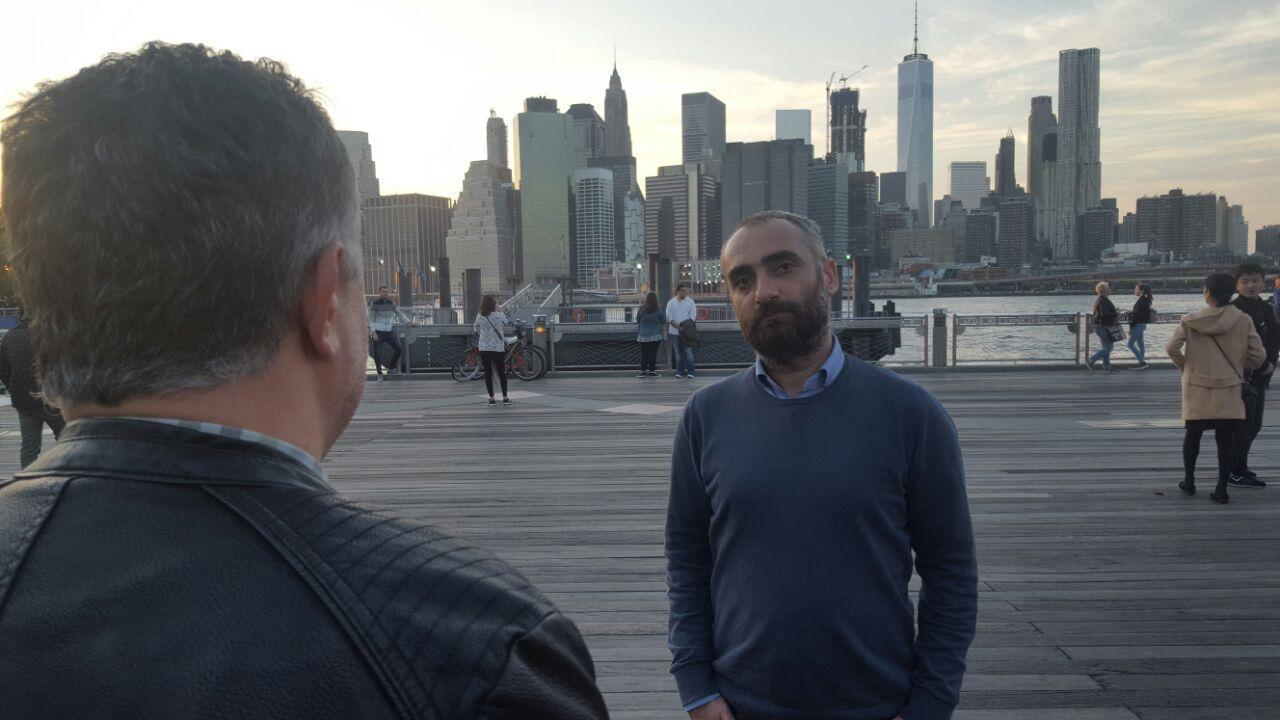ByLock use is an evidence of Gülen network links: Owner
İsmail Saymaz – NEW YORK
 The usage of ByLock, an encrypted messaging application that is said to have been used by members of the Gülen Movement under U.S.-based Islamic preacher Fethullah Gülen, who is accused of orchestrating the failed coup attempt of July 15, could show evidence of links to Gülen, according to a Turkish-origin U.S. citizen, who has been revealed to be the patent holder for the app.
The usage of ByLock, an encrypted messaging application that is said to have been used by members of the Gülen Movement under U.S.-based Islamic preacher Fethullah Gülen, who is accused of orchestrating the failed coup attempt of July 15, could show evidence of links to Gülen, according to a Turkish-origin U.S. citizen, who has been revealed to be the patent holder for the app.David Keynes, who acquired American citizenship and changed his name with inspiration from British economist John Maynard Keynes, told daily Hürriyet in an interview in New York on Oct. 16 that he agreed using ByLock could be construed as evidence of Gülenist links, although not in all cases, noting that he himself installed the app but never used it because he did not add anyone.
GETTING IN CONTACT WITH DAVID KEYNES
David Keynes was the subject of much speculation as the rights holder for ByLock, and daily Hürriyet reporter İsmail Saymaz related how he finally came to meet Keynes.
“David Keynes called my office phone on Oct. 12 and said ‘I want to talk to İsmail Saymaz.’ We tried to confirm that the caller was actually the owner of ByLock and found him on the records at Apple. We decided to meet him face to face to confirm his identity once again. We met with him on Oct. 16 in New York as he did not come to Turkey. Hürriyet’s New York correspondent, Razi Canikligil, was also present at the meeting, which was conducted at a café in Brooklyn. We took a photo in front of the Brooklyn Bridge to prove that the meeting was held in the U.S. He only permitted a picture to be taken from behind due to security concerns; Canikligil took the picture.”
Keynes told Hürriyet that his Gülen-linked former flatmate, nicknamed “Fox” and currently living in Turkey, developed ByLock before using Keynes’ credit card to publish it on Apple’s App Store three years ago.
Born in 1973 in Turkey, Keynes said he studied at Gülen-linked schools and stayed at their residences in Ankara before eventually moving to the U.S. in 2001 for a master’s degree after graduating from Ankara University’s Faculty of Political Sciences. Keynes said his father acquired Turkish citizenship and his mother was from the Black Sea province of Giresun.
During the interview, Keynes stated that he met “Fox” in his college years and that they became flatmates in Portland between 2003 and 2004, adding that the flat upstairs was used as a residence of the Gülen movement. Keynes said “Fox” had links with the movement and that the latter’s father was also a member of the organization.
Now a sworn financial adviser in Connecticut, Keynes is the owner of ByLock and still holds the records of the application in Apple, which is currently not available for download.
Keynes said the application had been downloaded by 600,000 people, mostly from Turkey, Saudi Arabia and Iran, with 500,000 downloading the app on the Google Play Store and another 100,000 on the App Store. He said 90 percent of Turkish ByLock users were members of the Gülen Movement, admitting that it had turned into a communication tool of the organization.

However, Keynes noted that the application had been unavailable since January 2016 and that it was also not available during the failed coup attempt of July 15. He said the application was available both on the App Store and Google Play Store from March 2014 but that it was removed from the App Store on Sept. 7, 2014, because it was not updated. The app, however, remained available for download in the Google Store for a year. The application was also available for download through various websites after its removal from both mobile platforms.
According to Keynes, he learned about ByLock when he met with “Fox” on Dec. 3, 2013, to watch Breaking Bad at his house, during which time “Fox” asked to use his credit card.
“I asked what he was going to use the [credit card] for? He said, ‘I’m going to develop a program.’ I said OK. [A credit card] was necessary to publish a program on the App Store. This was how it began. The aim of ‘Fox’ was to present ByLock to technology companies at Silicon Valley in San Francisco. He would have invested capital and expanded the company had the application been appreciated,” Keynes said, claiming that “Fox” might have wanted to expand the number of ByLock users to sell it in Silicon Valley.
Keynes also stated that he questioned “Fox” about ByLock after reports began to circulate regarding the application following the failed takeover on July 15.
“When there were reports on ByLock after July 15, I asked ‘Fox’ what that meant. He could not provide an explanation. Referring to a Gülenist partner and the movement, he said, ‘I gave it to some friends and they passed it on to others.’ The partner of ‘Fox,’ who escaped after July 15, is currently in connection with a journalist abroad. It became a communication tool of the movement via those people. The movement used it for organizational communication, but I think that’s absurd because it is very easy to hack. I asked, ‘What were you doing?’ to Gülenists in the U.S. and they said, ‘We were sending prayers and chats to each other,’” Keynes said.

When asked why the application was not used in Europe or U.S., Keynes said it was only advertised to the Gülen movement without any general advertisement.
Keynes also stated that he stopped paying the server company GoDaddy in October 2015. Keynes also noted that he would file a lawsuit against GoDaddy as the codes of ByLock had been hacked by the Turkish National Intelligence Agency (MİT) and that his user identity had been disclosed.
In addition, Keynes said he would disclose the identity of “Fox” once he is called to testify and an investigation is opened. After the failed coup attempt, “Fox” first fled to Germany and then U.S. but returned to Turkey as there was no investigation opened against him, according to Keynes.
According to his passport, Keynes came to Turkey on June 12 and went to the Netherlands before eventually coming back to Turkey on June 17. He left the country on Aug. 7 after the coup attempt.
“It is impossible for MİT to not know. I entered and left the country twice a year with my passport. I was in Turkey both during and after the coup. I did not feel like I was being followed,” Keynes said, adding that intelligence officials have not contacted him even though he was listed as the owner of ByLock on the App Store.
Keynes also refuted that he was a member of the Gülenist movement, but said there were clients of his who were from the movement.
“I think that Fethullah Gülen is schizophrenic and he is acting. I think that he is exploiting the poor and lower class by also controlling the monetary resources of people around him. I believe that the grassroots are innocent but the upper class of the movement is a coup organization,” Keynes said.
The name of Keynes first appeared in a report in The Guardian at the request of Reuters in August. He was mentioned as the creator of the application but that the report said it was unable to locate anyone matching the name or verify the veracity of his identity.
















